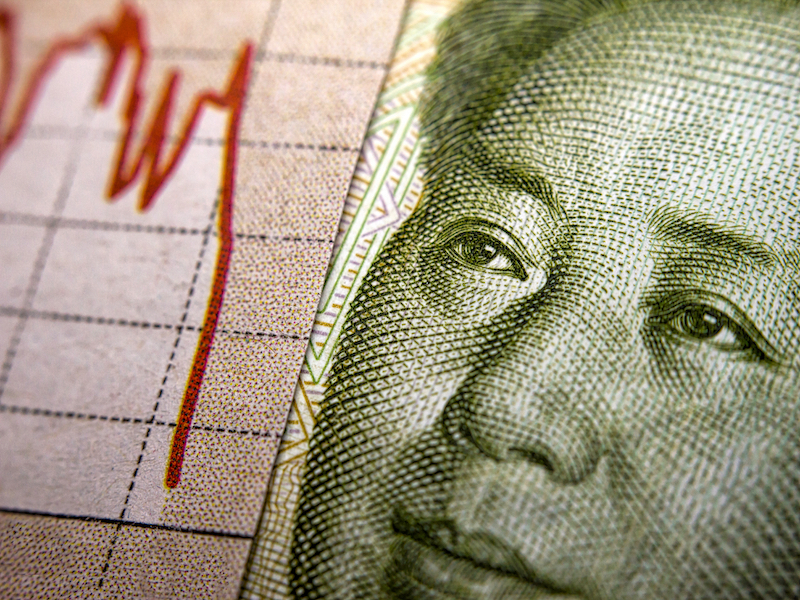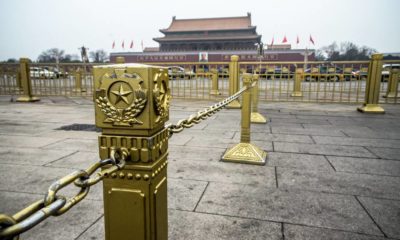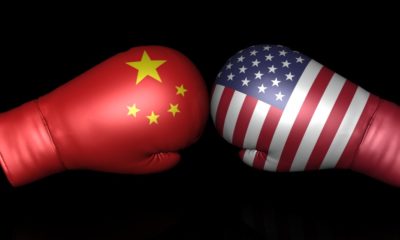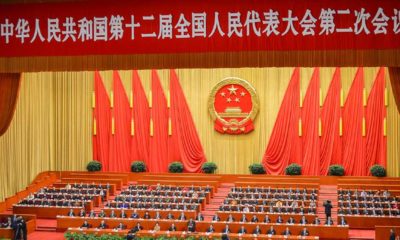Bonds
How China’s Debt Fix Could Make Things Much Worse

The International Monetary Fund published a paper on Tuesday with an alarming forecast for China’s economic future. This is not to forget that China has the world’s second-largest economy, still major problems may loom emerge ahead.
The IMF references multiple financial trends in its warning. These include massive corporate debt, slowing economic growth rate, and a tedious relationship between the Chinese government and corporations.
According to the IMF, China is not the only country that should worry.
China’s Economy: A Slippery Slope
After relying on credit-driven growth for 20 years, Beijing faces massive debt.
Many Chinese corporations are state-owned enterprises (often simply called SOEs). When the SOEs borrow money from the government, they frequently accumulate debt.
Before long, the firms cannot even afford interest payments.
Meanwhile, the country’s corporate debt has reached $1.3 trillion. This high figure could cause devastating bank losses.
“Zombie” Firms Pose Another Problem
So-called “zombie” firms are another problem for China. Zombie firms are unproductive, unsustainable corporations that continue operations.
The IMF advises the government to pay closer attention to these weak companies. They are playing a major role in stalling economic growth.
So far, China’s government has continued to support zombie SOEs to avoid social and political clashes. However, the cycle of lending money without receiving any returns is obviously unsustainable.
How Will Beijing Respond?
In 2015, the Chinese government asked citizens to invest in the stock market. The goal was for investments to give companies a boost. The attempt failed, however, with multiple stock market crashes. Now, Beijing must adopt a new approach. To bolster the economy, Beijing proposes:
- to allow banks to convert debt into equity which means, banks would swap companies’ non-productive loans (NPLs) in return for stakes in those companies
- to discourage continued government support of zombie firms
- to implement securitization (a.k.a. bundling debts to sell as securities)
In the past, similar ideas and strategies to that of the US were implemented to address its economic troubles. However, the question is: would such measures work for China?
How Beijing’s Proposal Could Backfire
Chinese IMF mission leader James Daniel urges China to design its plan of action very carefully.
If Beijing tries to take measures like securitization, the government needs to ensure there is a sufficient overhaul. Otherwise, the persistent zombie firms will only continue to spread.
In fact, the IMF warns, securitization might make the issue of zombie firms worse. After all, just because the strategies have worked for capitalist countries like the United States, it does not mean those methods will cause the same results in China.
The powerful influence China’s government has over corporations makes the proposal to swap debts for equities risky, too. Everything depends on China making an effective transition from its current model of credit-driven growth to a more consumer-based economy.
[buffet_recommended]
Serious Challenges Ahead
Some economists already predict such transition will be most dangerous. If Beijing proceeds with its plan, the IMF has identified several key factors that could enable success:
• the presence of a wide, varied pool of debt
• the Chinese government’s willingness to allow corporations more authority
• the flexibility of the Chinese legal system when it comes to restructuring companies
• the cooperation of banks to preserve interest in companies
Clearly, China needs to navigate these kinds of issues with particular care.
Treating the Illness, Not The Symptoms
According to Société Générale Wei Yao, small changes are not enough. Instead, she says, the government must make major changes to the system as a whole.
The recent IMF paper agrees. The authors argue that China should approach its economic dilemma with a comprehensive plan. Changes need to be on a fundamental level.
In other words, it’s not enough to address the symptoms. Instead, China needs to treat the underlying disease as soon as possible. Some economists believe time is already running out.
Global Stakes
It is not difficult to imagine how Beijing itself may suffer from an economic collapse. But the magnitude of the problem could extend far beyond China.
IMF authors James Daniel, José Garrido, and Monica Morretti suggest that corporate debt, stagnating growth rate, and potential bank losses could all have serious consequences for the global economy.
China’s growth rate (the expansion of its economy since last year) has already fallen bellow 10%, a troubling sign. If this trend continues, emerging markets in other parts of the world will start to feel the effects.
For instance, a Chinese economic collapse would certainly impact countries that rely on Chinese demand for their exports. Because China once invested heavily in industrial metals and energy (especially oil), countries that export to China will struggle, especially if commodities’ prices continue to drop.
A Critical Moment
Current financial trends in China do not bode well. Hopefully, there is still potential for an economic recovery. Whatever the outcome, however, the stakes are getting higher as national debt rises.
The decisions China makes now will be crucial, not only for its economy but maybe also for the whole world.















